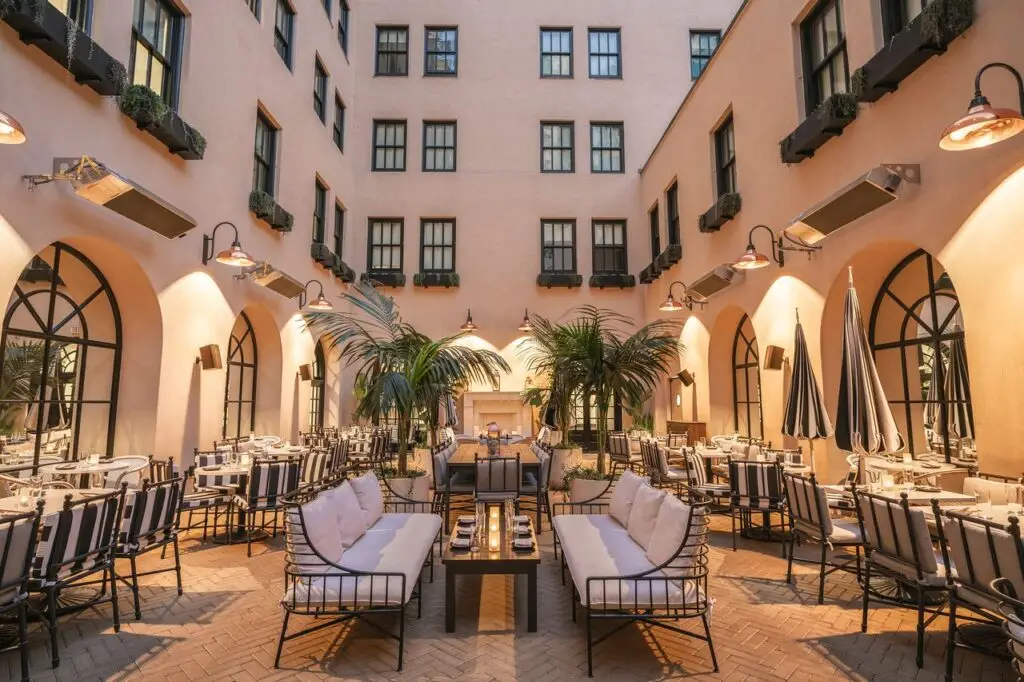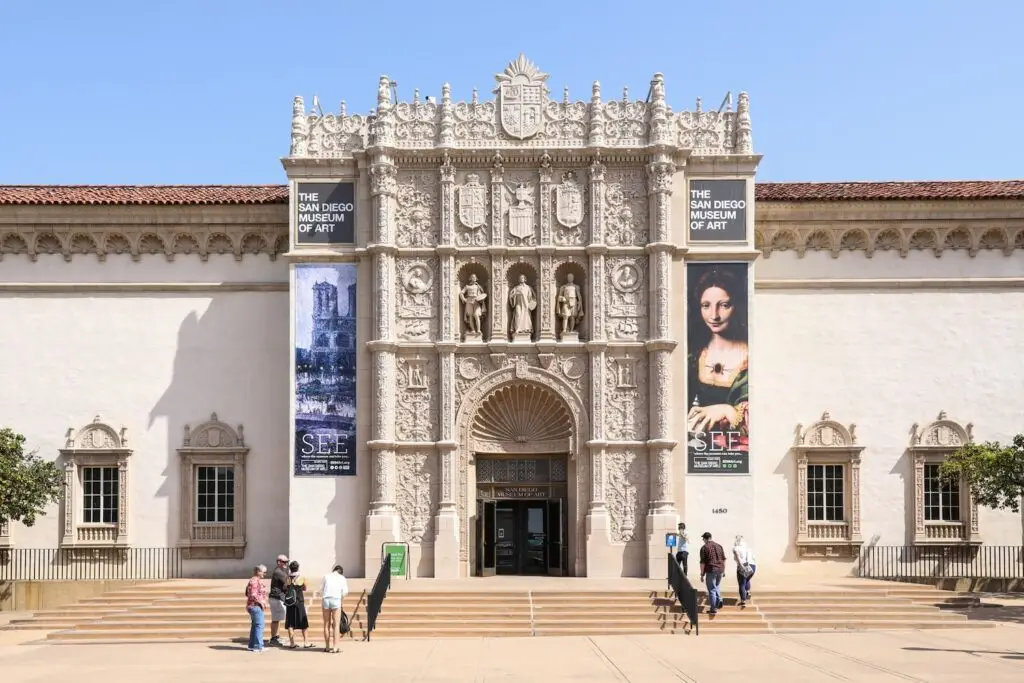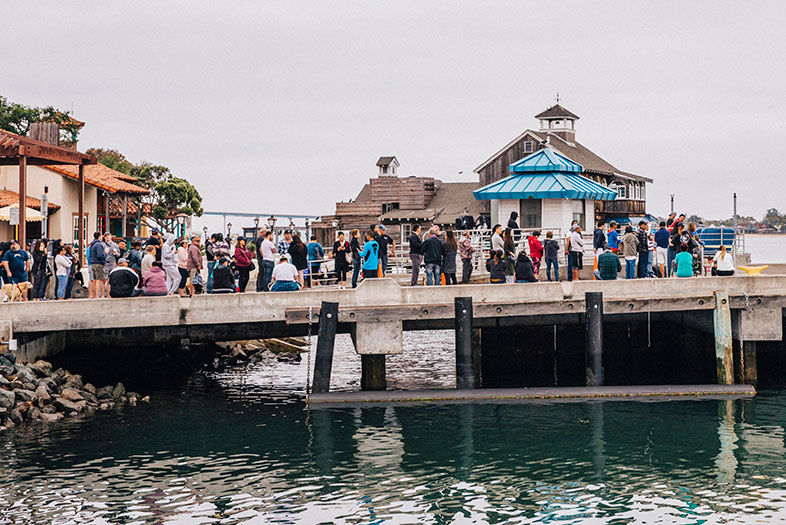“A protestor came up and was standing on the side of our tent for a while, lurking in the shadows,” explains Sean “Chef Maui” Canosa, who co-owns local uni and poke stand Island Life Foods with his wife. “When we had our backs turned, she grabbed one of our tubs with $300 worth of sea urchins and dumped them in the water. They were already dead. I don’t think she knew that once you take a sea urchin from its location, you can’t put it back in the ocean or they die.”
This is the new problem for San Diego’s fishing families, which gather every Saturday morning to sell their fresh catch at Tuna Harbor Dockside Market. Fishermen and women have had a rough few decades, for reasons explained in my recent feature on the industry. The market has been a bright spot, a place where they can sell sustainable, locally caught seafood to locals and tourists.
For the last few months, vegan protest group San Diego Animal Save has been standing at the entrance to the market, greeting customers with picket signs. Their signs read “SOME SCREAMS CAN’T BE HEARD” and “DON’T PAY FOR ANIMAL OPPRESSION.” They have an Instagram page dedicated to the market, which essentially paints the fishermen and women as murderers. One photo is captioned, “Heads of fish bodies found discarded!” (The fish heads are on ice, which suggests they are being saved for use, not discarded).
On August 17, an animal rights march was held in San Diego. One of San Diego Animal Save’s members helped organize it. According to Canosa, it was a member of that march who took $300 in sea urchins from his family’s stand and threw them into the harbor.
“She ended up running away, but one of the workers from the market followed her, and they called the harbor police,” Canosa says. “They gave us two choices: we could press charges or collect money. I told my wife it wasn’t worth it to press charges. So the woman paid for all the urchins.”
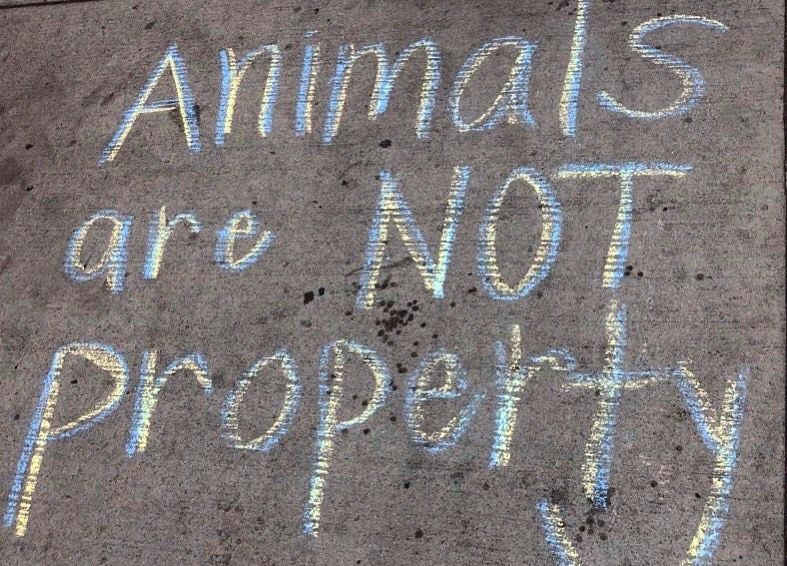
Editorial: Fighting the Good
I reached out to San Diego Animal Save to try to understand their protests. I understand and support the vegan lifestyle. Free speech is also crucial and sacred.
What I couldn’t get my head around is: The fishermen and women at Tuna Harbor are credited as some of the most sustainable, ethical fishing families in the world. Why protest the good guys? There are plenty of ethically challenged seafood operations. A food scientist recently estimated that seafood fraud is a $70 billion problem. A Charlottesville, North Carolina, company just pleaded guilty to fraud after selling $4.3 million worth of mislabeled crab meat. In 2016, the Food and Agriculture Organization of the United Nations reported conditions of “modern day slavery” in unregulated fishing industries in other countries.
Why not protest those bad players, instead?
About 95 percent of the U.S. population eats meat. Knowing this, shouldn’t we support the men and women doing it sustainably and ethically? Let’s say San Diego Animal Save is successful, and they harm the business of the local families. What’s the result? Meat consumption is very unlikely to go down. The more likely outcome is that customers will be forced to buy their seafood from less sustainable, less ethical sources.
A woman from San Diego Animal Save initially agreed to speak on the record for the story. Afterward, she asked that I not use her name or quote her. To respect that, I’ll sum up the explanations she provided:
She does not endorse the woman’s “liberation” of the sea urchins. She protests at Tuna Harbor partially because these locals have earned a reputation as highly sustainable, ethical fishermen and women. As is written on their Facebook site, “There is also this rising movement of ‘humane’ meat and ‘sustainable’ farming and fishing. The labels ‘humane’ and ‘sustainable’ are concerning because there is no humane way to kill someone who does not want to die.” She said she does not want to interfere with local families’ businesses or livelihoods, and said the popularity of Tuna Harbor Dockside Market has been good PR for San Diego Animal Save. She also prefers to call her actions “vigils,” not “protests.”
So after decades of work—designing dolphin-safe nets, reducing bycatch, strictly adhering to quotas, investing in responsible gear—these local fishermen and women have finally earned the reputation as some of the most responsible, ethical fishing families. And every weekend they show up to work, a group of activists “vigil” them and their customers, partially because they are sustainable and ethical.
“It was definitely bad for business,” says Canosa of the urchin incident. “I’m just glad nobody got hurt.”
Tuna Harbor Dockside Market happens every Saturday, 8 a.m.–1 p.m.
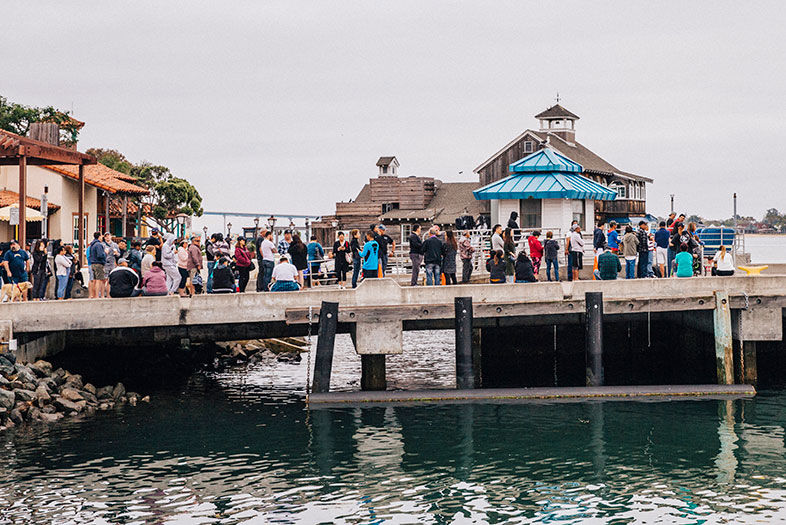
Editorial: Fighting the Good
PARTNER CONTENT
Tuna Harbor Dockside Market | Photo by Dewey Keithly

